Tuesday, March 30, 2010
Intellectual Stimulation? I am usally against that . . . .
Check this article/blog post out, it is an interview with Curtis Roads and was in the 1988 computer music journal. The part that caught my attention was the intro by the interviewer Brigitte Robindore'. Most everyone on here makes something artistic, so a thought provoking conversation in an Ivy League wanker magizine from when most of us weren't old to know how to wank, may be entertaining, and helpful in the creation process (yeah, i gots writers block suckas, per usual though).
Robindoré: In a 1988 interview in The New York Times, the instrumental composer Olivier Messiaen gave his rather remarkable perspective on electro-acoustic music: “The ancient musical modes lasted for ten centuries, tonal music only a few centuries, three centuries really. Serial music lasted about fifty years. Aleatory music should last for a few days, Minimalism a couple of weeks. What will last longer, I believe, is electronic music, or electro-acoustic music. Some composers do this, some don’t; I don’t - but even for me it has changed music. I cannot hear the orchestra in the same way, for instance, because of electro-acoustic music. It has not yet given us new masterpieces, but it has given us new timbres.” With the vantage point of a solid 30 years in the field, can you concur with Messiaen’s opinion concerning the lasting nature of this genre? And has your perspective changed over those years or only been confirmed? And what of his comment that the field has not yet offered (as of 1988, that is) any “masterpieces” such as those yielded by Western art instrumental and choral music composers over the centuries?
Subscribe to:
Post Comments (Atom)



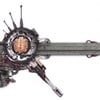
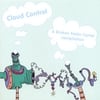
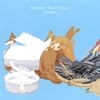
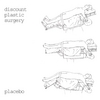
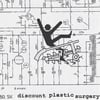
Are you referring to electronic music in general, or are you specifically referring to electro-acoustic music? I agree that there haven't been any masterpieces in the electronic realm. I've heard plenty of anthems in my day, but nothing that I would classify as the pinnacle of postmodern "art". I also agree with the idea that this kind of music has staying power, but compared to other musical paradigms, electronic stuff has a long way to go. Electronic music has only been around for 50-75 years (right?) so it is still too early to tell if this is just a temporary style. Who knows?
ReplyDeleteWhat particularly interests me about "techno" music is the amount of restrictions put on people who make it. Generally, house is confined to a 4x4 beat, DnB is based on a sped-up two step beat, Electro relies on 808s/909s, etc. Where most people might see that as boring and repetitive, I think it separates the men from the boys. Anybody can lay down kick drums on every downbeat and call it a house choon, but it takes much more talent to take that template and make it original. In other words, such rules make it much harder for a tune to stand out from the rest. It's easy to make a generic electronic tune, but it truly takes skill to make something with personality or soul. Classical music definitely had rules (i.e. scales, modes, etc.), but they were much more broad and open. Rock, Metal, and Jazz aren't confined in this way at all. The only other music I can think of that has similar restrictions is the Blues, but that shit is bland and played out.
At the end of that day, I feel that frequencies are the new notes.
Does any of this make sense? Am I over-thinking all of this stuff? I dunno...just speaking my mind.
I think this article is addressing electro acoustic music, but I think it can be used in the context of electronic and even into the pop world. (I wrote nothing past the first paragraph in case I didn't make that clear, I ain't that smart). It is talking about the modern musical movement's but I apply that to synthesizers. What is the next ground breaking shit going to arise out of that? When is the next good new pop song going to hit us like the Beatles, Elvis, MJ?
ReplyDeleteA lot of the relations you make Jarrett about the constraints of the electronic music genre are very similar to the classical music confinement. Rock and Jazz are improved based (or should be) and a lot of what you hear on a record or a live performance is the performance. In electronic and classical, the majority of the notes and song are composed and dictated. I have always seen electronic musicians as more composers than "musicians" per say. When you cross the plain, add in some midi controllers and knobs and shit, you are becoming more of a musician and affecting the music, however the core of your music is composed. The symphony can be a bunch of fuck head amateurs and you can still tell what the pieces is.
The main reason I posted this is because it addressed some of these online discussions we have had before, but the article was from 1988 when most of us hadn't even busted a nut yet.